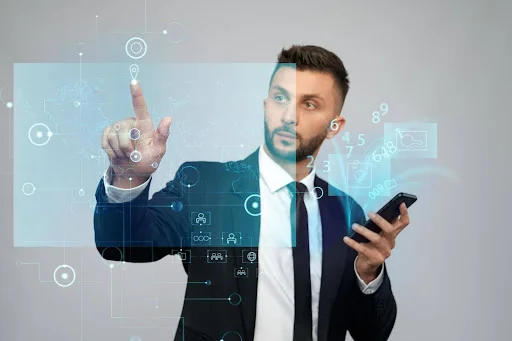Artificial intelligence (AI) is transforming the legal world—streamlining routine tasks, enhancing research, and reshaping how lawyers work or AI in Law. While legal practice has long been seen as traditional and resistant to change, AI is introducing tools that not only increase efficiency but also raise important questions about ethics, accuracy, and the future of the profession.
AI-driven tools are reshaping litigation, particularly in areas such as eDiscovery, case analysis, and legal research. Advanced technologies like ChatGPT can streamline eDiscovery by automating document review, identifying relevant information, and extracting key data more efficiently than traditional methods—provided they are guided by legal experts to ensure accuracy and compliance.AI’s most immediate impact is in automating time-consuming, repetitive tasks. Legal professionals now rely on tools that can review documents, analyze contracts, and assist with discovery in litigation. Platforms like Relativity, Everlaw, and Kira Systems quickly process large volumes of data, identifying relevant information far faster than humans.
This reduces the workload for lawyers and frees them to focus on higher-value work such as case strategy, negotiation, and client engagement.
Continue your journey: This related article is worth your time.
Faster, Smarter Legal Research
AI-powered legal research tools such as Lexis+ AI and Casetext’s CoCounsel allow users to search for case law, statutes, and precedents using natural language. Instead of traditional keyword-based searches, lawyers can now ask plain-language questions and receive contextual, legally grounded responses.
These platforms help professionals stay up to date with evolving case law and identify new arguments more quickly than before. However, while faster, these tools still require human review for accuracy and completeness.
Contract work is another area where AI shines. Tools can generate first drafts, flag inconsistencies, and suggest commonly used clauses based on context. This speeds up the drafting process significantly—especially useful in fields like real estate, procurement, and finance, where contracts are frequent and complex.
Still, human oversight remains essential. AI-generated drafts must be reviewed for legal soundness, tone, and alignment with client interests.
Improving Access to Legal Help
AI is also expanding access to justice. Many individuals can’t afford legal representation for common issues like housing, debt, or employment disputes. AI-powered legal assistants and chatbots are helping bridge this gap by offering explanations of legal rights, helping users fill out forms, or guiding them through basic procedures.
While not a substitute for legal advice, these tools serve as valuable starting points, especially for underserved communities.
Predictive Insights and Strategic Decision-Making
AI tools can now provide predictive insights based on patterns in past rulings and judicial behavior. Legal teams use this data to assess litigation risks, determine case timelines, and make more informed decisions about whether to settle or proceed to trial.
These insights don’t replace a lawyer’s judgment but can enhance it, offering an evidence-based approach to strategy.
Ethical Considerations and Risks
Despite its benefits, AI in law is not without risk. Chatbots like ChatGPT, for example, can generate misleading or entirely false information—known as “hallucinations.” Several lawyers have already faced consequences for submitting AI-generated filings with fabricated case law.
Bias is another concern. AI trained on flawed or biased data may replicate existing inequalities in the justice system. For these reasons, transparency, data quality, and human oversight are critical when deploying legal AI.
Confidentiality is also at stake. Law firms must ensure that any AI platform used for client matters complies with privacy laws and ethical standards.
The Role of ChatGPT in Legal Practice
ChatGPT has gained popularity among legal professionals for quick research, summarizing documents, and drafting content. While powerful, it should be used cautiously. ChatGPT doesn’t “know” if its answers are correct; it generates text based on patterns in the data it was trained on.
It’s useful for brainstorming, organizing thoughts, and even formatting citations—but not for providing legal advice or verifying the law. Any information generated by ChatGPT must be independently checked before use in professional contexts.
AI is not replacing lawyers—it’s transforming how they work. By automating routine tasks and delivering insights at scale, AI allows lawyers to focus on judgment, advocacy, and client service.
But technology can’t replace ethics, critical thinking, or legal expertise. Lawyers must remain the final decision-makers, ensuring AI tools are used responsibly and effectively.
Firms that adapt thoughtfully—balancing innovation with caution—will be better positioned to thrive in the rapidly evolving legal landscape.
Before you head out, don’t forget to check out some of our other great reads!







